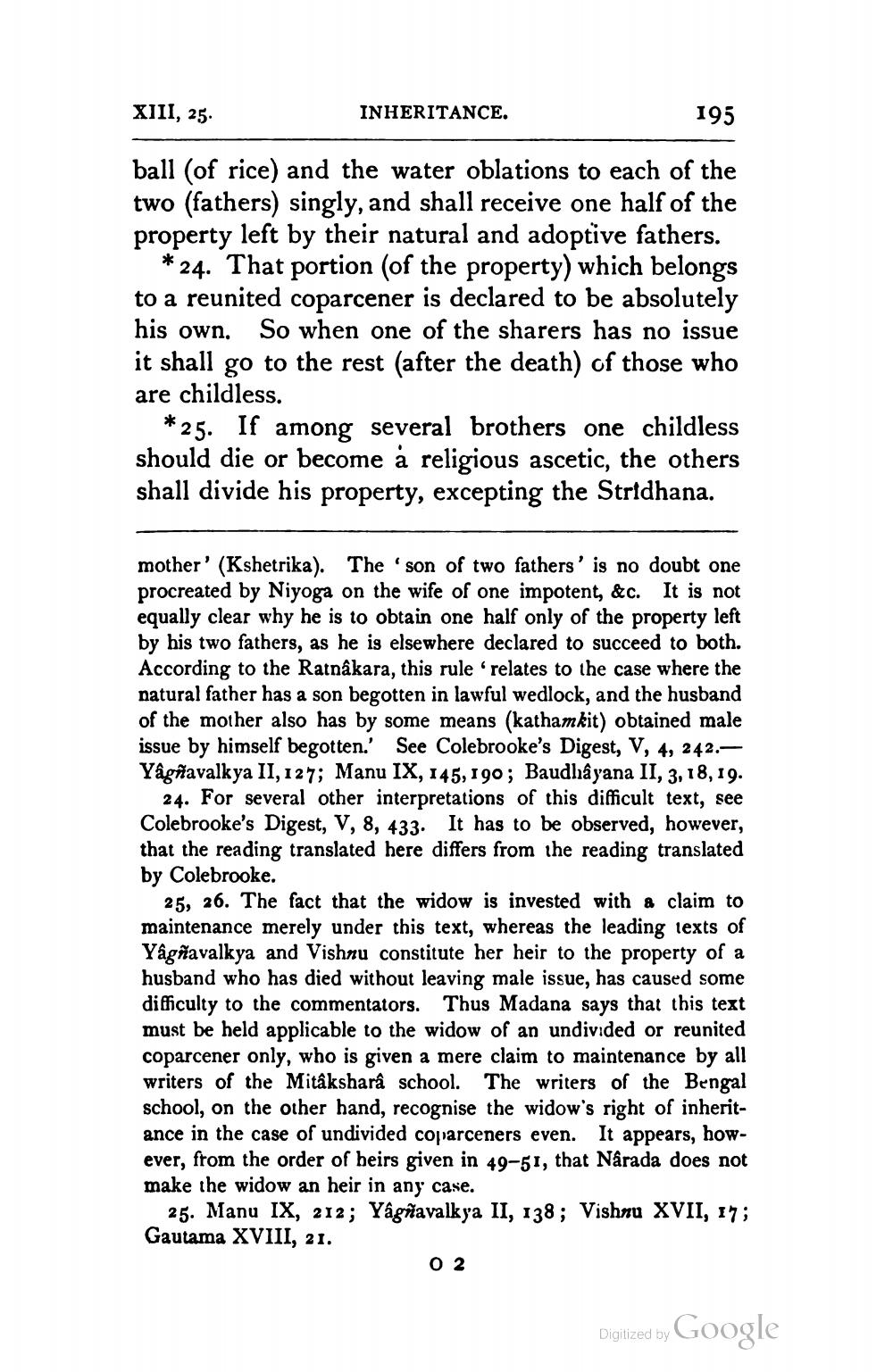________________
XIII, 25.
INHERITANCE.
195
ball (of rice) and the water oblations to each of the two (fathers) singly, and shall receive one half of the property left by their natural and adoptive fathers.
* 24. That portion (of the property) which belongs to a reunited coparcener is declared to be absolutely his own. So when one of the sharers has no issue it shall go to the rest (after the death) of those who are childless.
*25. If among several brothers one childless should die or become a religious ascetic, the others shall divide his property, excepting the Stridhana.
mother' (Kshetrika). The son of two fathers' is no doubt one procreated by Niyoga on the wife of one impotent, &c. It is not equally clear why he is to obtain one half only of the property left by his two fathers, as he is elsewhere declared to succeed to both. According to the Ratnakara, this rule 'relates to the case where the natural father has a son begotten in lawful wedlock, and the husband of the mother also has by some means (kathamkit) obtained male issue by himself begotten.' See Colebrooke's Digest, V, 4, 242.Yâgħavalkya II, 127; Manu IX, 145, 190; Baudhayana II, 3,18,19.
24. For several other interpretations of this difficult text, see Colebrooke's Digest, V, 8, 433. It has to be observed, however, that the reading translated here differs from the reading translated by Colebrooke.
25, 26. The fact that the widow is invested with a claim to maintenance merely under this text, whereas the leading texts of Yagñavalkya and Vishnu constitute her heir to the property of a husband who has died without leaving male issue, has caused some difficulty to the commentators. Thus Madana says that this text must be held applicable to the widow of an undivided or reunited coparcener only, who is given a mere claim to maintenance by all writers of the Mitaksharâ school. The writers of the Bengal school, on the other hand, recognise the widow's right of inheritance in the case of undivided coparceners even. It appears, however, from the order of heirs given in 49-51, that Narada does not make the widow an heir in any case.
25. Manu IX, 212; Yagñavalkya II, 138; Vishnu XVII, 17; Gautama XVIII, 21.
02
Digitized by Google




